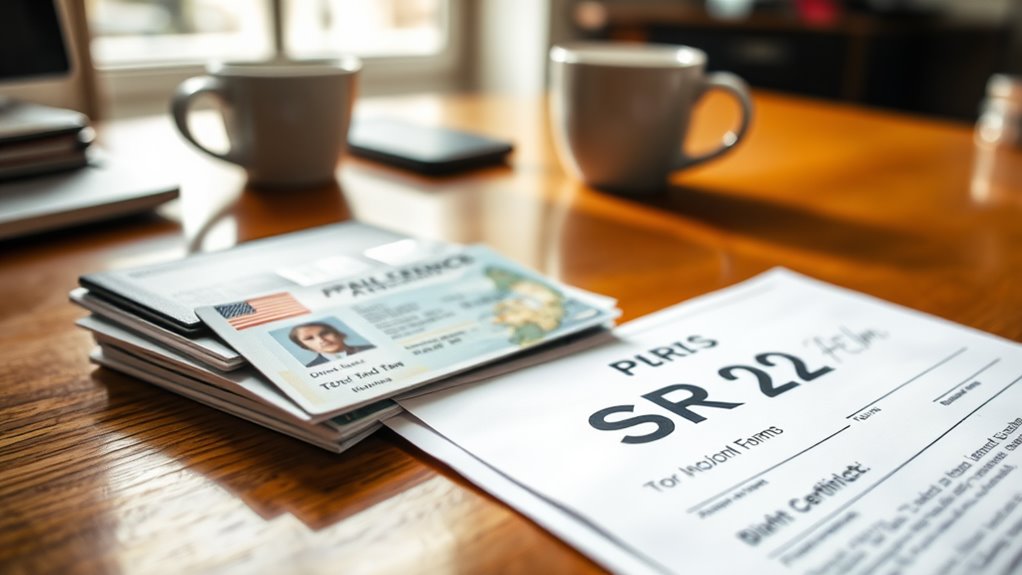When you're applying for SR-22 insurance, having the right documents is essential. You'll need a valid driver's license or state ID to confirm your identity, proof of vehicle registration to show ownership, and your Social Security number for financial verification. These documents streamline the process and guarantee compliance with state regulations. But that's just the beginning—there are more details to take into account that can impact your insurance experience.
Key Takeaways
- A valid driver's license or state ID is essential for SR-22 insurance application.
- Providing a Social Security number or SSN card aids in identity verification.
- A vehicle registration document proves ownership and compliance with insurance requirements.
- A birth certificate may be requested for additional identity verification, if necessary.
- Ensure you have the vehicle's make, model, and VIN number ready for the application.
Proof of Identity

When applying for SR-22 insurance, proving your identity is vital. You'll need valid documents like your driver's license, which is typically the primary form of ID. If you don't have a license, a state ID or a passport can serve as substitutes. Make sure to include your Social Security number or SSN card, as these are often required for verification. Occasionally, a birth certificate may be necessary for additional proof. The verification process might involve in-person checks or digital submissions, so be prepared with both originals and photocopies of your documents. Additionally, remember that an SR-22 is mandated if you have been ordered by a court or have multiple traffic offenses. It's also important to note that SR-22 insurance is typically required for high-risk drivers, which may include those with DUI convictions or repeated traffic violations.
Vehicle Information
Vehicle information plays an essential role in obtaining SR-22 insurance. You'll need to provide details about your vehicle, including its make, model, and VIN number.
Depending on whether you own the vehicle or use a non-owner policy, the type of SR-22 you require may differ. Don't forget to submit proof of your vehicle's registration to demonstrate compliance with state regulations.
It's also important to clarify how you use your vehicle—whether for personal or business purposes—since this can affect your insurance needs.
If you have multiple vehicles, verify you include information on all of them under your policy. Accurate vehicle information not only streamlines the process but also helps you secure the right coverage tailored to your situation.
Insurance Policy Details
Understanding the various types of SR-22 policies is essential for anyone maneuvering the complexities of high-risk auto insurance.
Here's a quick overview of the main types:
- Standard SR-22: Required for serious traffic violations.
- Non-Owner SR-22: For drivers without a vehicle, covering them when driving others' cars.
- Owner Policy: Covers vehicles you own.
- Operator/Owner Policy: For those who both own and operate non-owned vehicles.
- FR-44: Similar to SR-22 but has higher coverage requirements in certain states.
Each policy serves to demonstrate financial responsibility and is critical for maintaining your driving privileges.
Make sure you know which type fits your situation to avoid consequences like license suspension.
Conclusion
Gathering the right documents for your SR-22 insurance is like assembling the keys to your freedom. With your valid driver's license, proof of vehicle registration, and Social Security number in hand, you're not just ticking boxes; you're paving the way to reclaim your driving privileges. Picture the open road ahead, and feel the weight lift off your shoulders as you take the first step toward a brighter, more responsible future behind the wheel.

